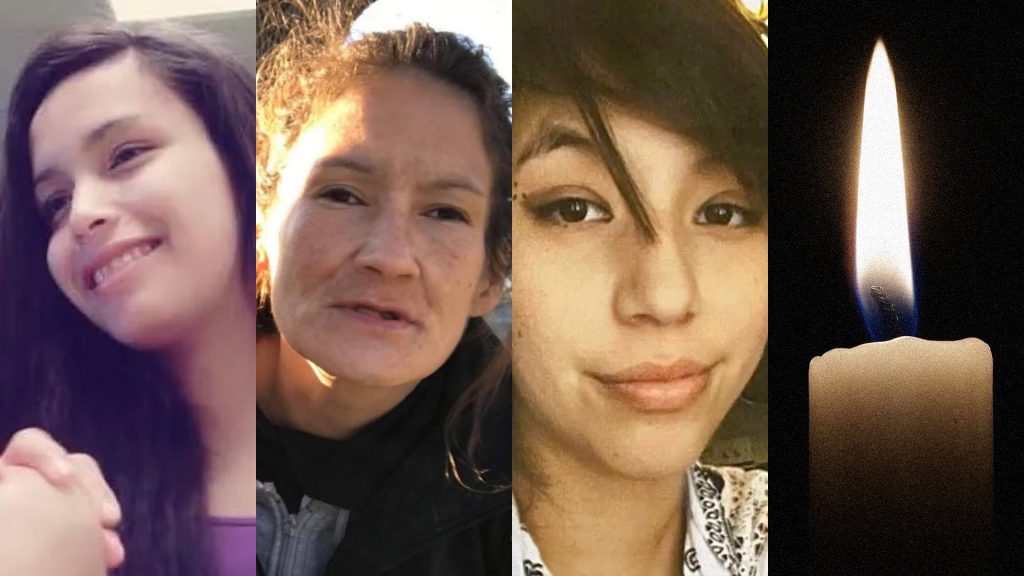
Left to right, Rebecca Contois, Morgan Harris, Marcedes Myran and a candle for Buffalo Woman. Photo: APTN
A Crown prosecutor says a man who killed four women in Winnipeg staked out homeless shelters and targeted vulnerable, Indigenous victims.
“This case is about a man’s hate filled and cruel acts perpetrated against four vulnerable indigenous women,” prosecutor Renee Lagimodiere told court Wednesday on the opening day of the trial of Jeremy Skibicki.
He said Skibicki devised a calculated scheme and carefully thought out what he would do to his victims.
“He preyed on these women in Winnipeg shelters and invited them back to his home, where he assaulted them, often sexually, and killed them.
“He engaged in vile, sexual acts with their bodies. He then disposed of the women as though they were garbage.”
The remains of one victim were found in a dumpster and at a landfill in 2022. The remains of two others are believed to be in a different landfill. It’s not known where the fourth woman is located.
Skibicki, 37, is charged with four counts of first-degree murder in the deaths of Rebecca Contois, Morgan Harris, Marcedes Myran and a fourth unidentified woman Indigenous leaders have named Buffalo Woman in the early months of 2022.
Defence lawyers have said Skibicki admits to the slayings but should be found not criminally responsible because of a mental disorder
The case turns on Skibicki’s mental state at the time of the killings.
Law professor Brandon Trask, in an interview earlier this week with The Canadian Press, said such a defence presents multiple challenges for Skibicki’s lawyers.
Once a mental illness has been established, Trask said, it comes down to whether the diagnosis made Skibicki incapable of knowing the slayings were wrong.
“This is not the sort of a case where there’s a single victim, a single moment in time. This is a situation involving four victims across presumably a lengthier period in time,” said Trask, an assistant professor of law at the University of Manitoba.
“This is going to be very challenging for the defence, very complex and very technical.”
Both sides have told court they plan to call expert witnesses to testify on Skibicki’s mental state.
Trask said there is not the same need to provide proof beyond a reasonable doubt as there is with a criminal conviction. The measure used for a finding of not criminally responsible is 50 per cent plus one that the accused most likely did not understand what he was doing was wrong.
Trask said it will be up to prosecutors to poke holes in the defence arguments.
The case was originally supposed to be heard in front of a jury. Jurors were selected at the end of April and were set to hear evidence this week.
That changed Monday, when the defence told court Skibicki doesn’t contest the killings and is pursuing a not criminally responsible defence.
The Crown then agreed to a long-standing defence bid to have the case heard by a judge alone. The two sides agreed the complexity of a not criminally responsible defence is better suited to a judge than a jury.










